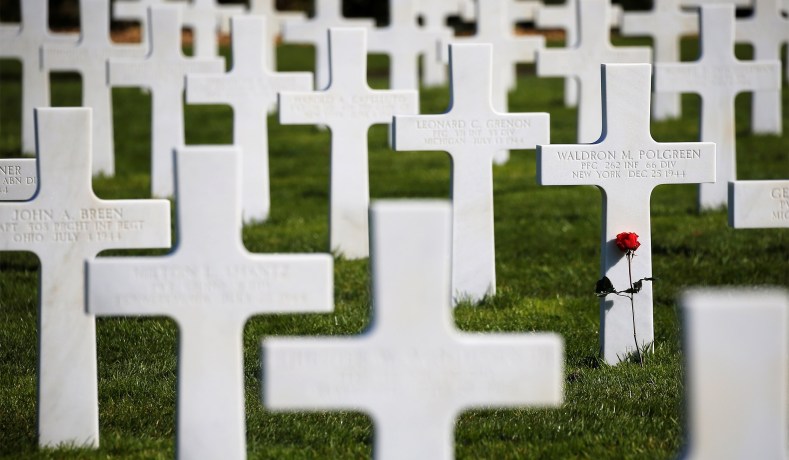
Terrible yet inspiring traces of D-Day remain in the Normandy landscape.
On a bluff above the sand and a half-mile from the ocean’s edge at low tide, which was the condition when the first Allied soldiers left their landing craft, a round circle of concrete five feet in diameter provides a collar for a hole in the ground. On the morning of June 6, 1944, the hole was Widerstandsnest (nest of resistance) 62, a German machine-gun emplacement.
Hein Severloh had been in it since shortly after midnight, by which time U.S. aircraft were droning overhead, having dropped young American paratroopers Severloh’s age behind the beaches to disrupt German attempts to rush in reinforcements. Severloh had been billeted near Bayeux, home of the eleventh-century tapestry depicting a cross-Channel invasion that went the other way, taking William, Duke of Normandy, to become William the Conqueror, England’s sovereign.
Severloh believed that he killed hundreds of GIs, so long and slow was their walk to the safety, such as it was, of the five-foot embankment where the beach meets the bluff. Severloh returned here in sorrow and was consoled by survivors of the forces that waded ashore.
Today, a frequently seen bumper sticker proclaims: “War is not the answer.” But here, especially, it is well to remember that whether war is the answer depends on the question.
War was the answer to what ailed Europe in 1944. “In 1942,” writes Timothy Garton Ash of Oxford and Stanford’s Hoover Institution, “there were only four perilously free countries in Europe: Britain, Switzerland, Sweden and Ireland.” Twenty years — a historical blink — later, almost all of Western Europe was free. Twenty years after that, Spain, Portugal and Greece had joined the liberal democracies. Today, for the first time in 2,500 years, most Europeans live under such governments.
Ash argues that Europe cannot define itself negatively — as not America or not Islam. “Europe’s only defining ‘other’ is its own previous self” — its self-destructive, sometimes barbaric past. “This is,” Ash says, “still a very recent past.











